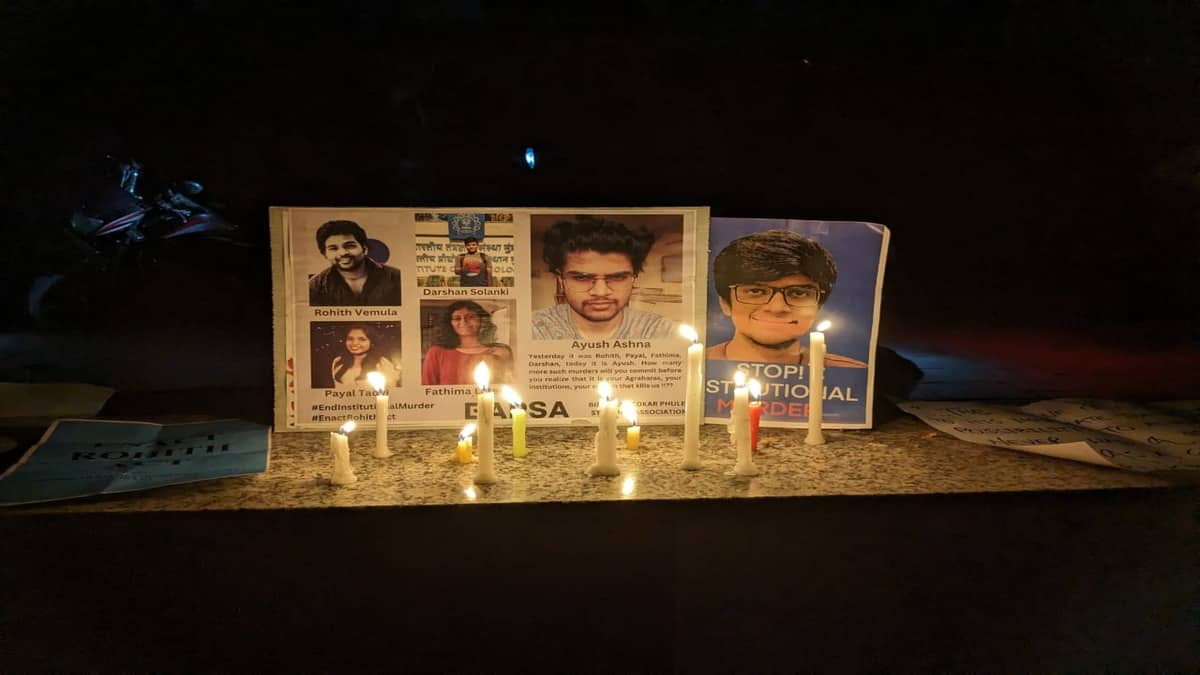‘We’re still alone’: IIT Delhi under SC-ordered probe but ‘no visible change’ for SC, ST, OBC students
Sheena Sachdeva | April 16, 2025 | 06:35 PM IST | 3 mins read
Students from marginalised backgrounds said they find the campus environment ‘hostile’ and ‘feel alone’ in the hostels. SC has ordered a probe into two suicides on campus.
IITs- A Comprehensive Guide
A complete guide to IITs: Learn about the admission process, required cutoffs, fees, top branches, campus details, and updated placement statistics—all in one place.
Download Now
NEW DELHI: More than a year has passed since the deaths of two dalit students, both by suicide, at Indian Institute of Technology (IIT) Delhi but others said they see “no visible change” in the way IIT Delhi treats those from marginalised backgrounds on campus. The deaths of Anil Kumar and Ayush Ashna recently prompted the Supreme Court to order Delhi Police to investigate.
Must See: IITs Comprehensive Guide
The SC also set up a national taskforce to address mental health issues and the rising cases of suicides among students. Since the SC’s order, IIT Delhi has been at pains to highlight what it's doing for those from the historically-marginalised Scheduled Castes and Schedule Tribes. It constituted an expert committee of external members, including experts and alumni, to address the issues related to mental wellbeing of students on campus. It organised a visit by tribal students of Ekalavya Model Residential Schools (EMRS) to its startup event; and as part of a joint project with the Department of Science and Technology (DST), the NURTURE programme, it trained 50,000 SC, ST students in new technologies.
In a statement, the administration said: “IIT Delhi is committed to taking more steps in this regard and it holds regular dialogues with its students to understand their problems and offer best possible solutions.” None of the students Careers360 spoke to had been invited to join any of these dialogues.
A Phd student, who did not want to be named said: “IIT Delhi and similar institutions have a well-oiled machinery – they are always upto the mark in legal matters. Though they have set-up a committee, they don't actually care about students.” Anil Kumar and Ayush Ashna were both undergraduates in the maths department.
Comment was sought from IIT Delhi. This story will be updated if and when they respond.
‘No one listens to us’
A masters student from a reserved category alleged that in 2024, a group of students had requested a hostel change but the administration did not respond to their emails.
“As hostels are allotted randomly, a few students from reserved category requested to be moved to the same hostel as they feel alone and find the environment hostile in their own hostels. This was a year back – nothing was done. We wrote many e-mails. We still feel alone because we don't know anyone. And no one listens to us,” he said.
If the refusal to move the students was to discourage segregation in living spaces, that seems to happen anyway in classrooms. “There is a systemic culture to not include students from reserved category [in group projects] because they have a lower Joint Entrance Examination (JEE) Advanced rank. This actually affects students and makes them vulnerable. And because the reserved-category students are in the minority, they feel they are not heard or seen,” said a PhD student and a teaching assistant for undergraduate students who has overseen several BTech projects.
That said, IIT Delhi has increased the number of counselors on campus, in comparison to previous years. “They have increased the number a bit and counselors visit the hostels more often,” said another research scholar. “The process happens through the hostel wardens who ask if any student requires counseling. However, all this was happening before also. Nothing has changed to a greater extent. It's almost the same.”
Students find teachers mostly unsympathetic. “Even the faculty doesn’t bother,” said a researcher. There's a lack of diversity in the faculty body – few women or those from SC, ST or other backward backgrounds and in many cases, forward-caste teachers – the “general category” – are against reservations, he said.
If you know someone – friend or family member – at risk of suicide, please reach out to them. Those in distress or having suicidal thoughts or tendencies could seek help and counselling by calling 9820466726 or visiting AASRA’s official website or can call iCALL on 9152987821. Here are some more helpline numbers of suicide prevention organisations that can offer emotional support to individuals and families.
Follow us for the latest education news on colleges and universities, admission, courses, exams, research, education policies, study abroad and more..
To get in touch, write to us at news@careers360.com.
Next Story
]SC enrollment 5.2%, ST’s negligible 1%: Panel flags forward caste dominance in top private universities
The panel studied data from private universities in top 100 NIRF rankings; UPES Dehradun has just 14 dalit students; just 11% of over 49,000 Amity University Noida students are SC, ST or OBC.
Musab Qazi